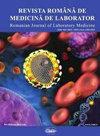High DNAJA4 expression correlates with poor survival outcomes in breast cancer
IF 0.5
4区 医学
Q4 MEDICINE, RESEARCH & EXPERIMENTAL
引用次数: 0
Abstract
Abstract Background: DNAJA4 (PRO1472) is a heat shock protein that has been associated with several types of cancers, including breast cancer. We aimed to reveal the protein expression, clinical outcomes, and regulatory mechanisms of DNAJA4 gene in breast cancer by employing tissue microarrays, transcriptomic datasets, and in-silico tools. Methods: DNAJA4 protein expression and its clinical implications were evaluated by immunohistochemistry assay (normals = 32; tumors = 121). RNA-seq and DNA microarray datasets were analyzed by using breast cancer gene-expression miner (Bc-GenExMiner v4.8) to estimate the survival probabilities of breast cancer patients. DNAJA4 promoter methylation level was analyzed in clinical samples by UALCAN in-silico tool (normals = 97; tumors = 793). Results: DNAJA4 protein expression is significantly high in clinical breast cancer samples compared to the normal samples (P = 0.016). High DNAJA4 mRNA expression is correlated with poor overall survival (OS), disease-free survival (DFS), and distant metastasis-free survival (DMFS) in breast cancer patients (P < 0.05). Mutations or copy number variations of DNAJA4 are uncommon in clinical samples. Reduced promoter methylation was observed in clinical breast cancer samples. Conclusion: We suggest DNAJA4 expression as a new biomarker candidate for breast cancer. Promoter hypomethylation could be an important epigenetic factor in the upregulation of DNAJA4 expression in breast cancer.乳腺癌患者DNAJA4高表达与生存预后差相关
背景:DNAJA4 (PRO1472)是一种热休克蛋白,与包括乳腺癌在内的几种癌症有关。我们旨在通过组织微阵列、转录组学数据集和计算机工具揭示DNAJA4基因在乳腺癌中的蛋白表达、临床结果和调控机制。方法:采用免疫组化法检测DNAJA4蛋白表达及临床意义(正常32例;肿瘤= 121)。采用乳腺癌基因表达挖掘软件(Bc-GenExMiner v4.8)对RNA-seq和DNA微阵列数据集进行分析,估计乳腺癌患者的生存概率。应用UALCAN芯片分析临床样本DNAJA4启动子甲基化水平(正常人= 97;肿瘤= 793)。结果:DNAJA4蛋白在临床乳腺癌组织中的表达明显高于正常组织(P = 0.016)。DNAJA4 mRNA高表达与乳腺癌患者总生存期(OS)、无病生存期(DFS)和远端无转移生存期(DMFS)差相关(P < 0.05)。DNAJA4的突变或拷贝数变异在临床样本中并不常见。在临床乳腺癌样本中观察到启动子甲基化降低。结论:DNAJA4的表达可作为乳腺癌新的生物标志物。启动子低甲基化可能是乳腺癌中DNAJA4表达上调的重要表观遗传因素。
本文章由计算机程序翻译,如有差异,请以英文原文为准。
求助全文
约1分钟内获得全文
求助全文
来源期刊

Revista Romana De Medicina De Laborator
MEDICINE, RESEARCH & EXPERIMENTAL-
CiteScore
0.31
自引率
20.00%
发文量
43
审稿时长
>12 weeks
期刊介绍:
The aim of the journal is to publish new information that would lead to a better understanding of biological mechanisms of production of human diseases, their prevention and diagnosis as early as possible and to monitor therapy and the development of the health of patients
 求助内容:
求助内容: 应助结果提醒方式:
应助结果提醒方式:


